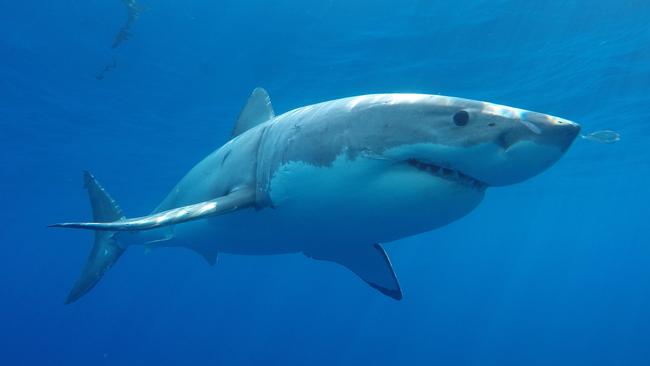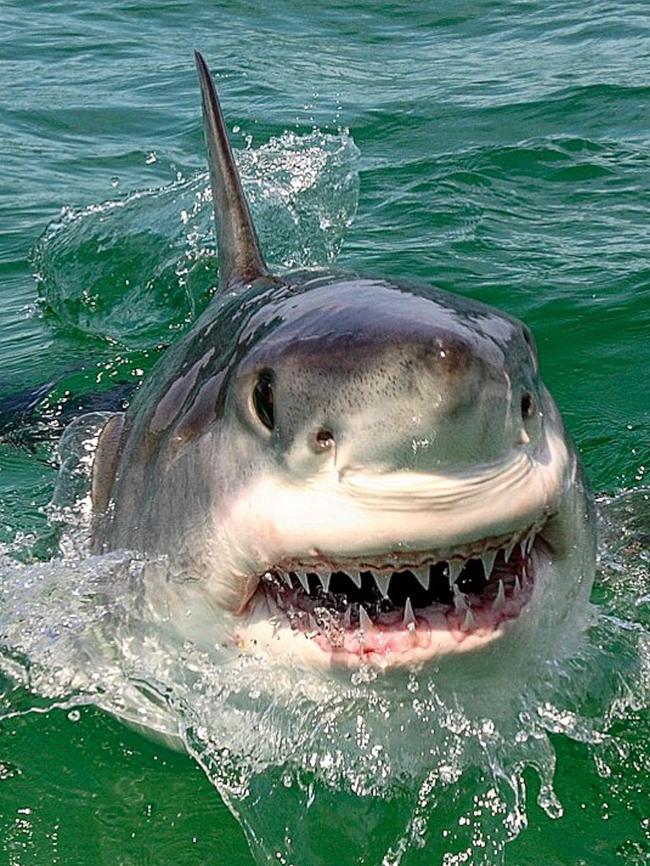Shark attack deaths in Australia at 10-year high, with more predicted
Shark attacks have doubled over the past two decades and 2020 is shaping up as a horror year with five fatalities so far, including Mani Hart-Deville, 15, who died after being bitten by a shark while surfing on Saturday. GRAPH: SHARK ATTACKS AND FATALITIES
Shark fatalities in Australia are at a 10-year high with five fatal attacks so far in 2020.
Now Sydney researchers predict surfers, swimmers and divers could be at greater risk of coming into contact with great white sharks on the NSW north coast and bull sharks in Sydney as climate change affects the East Australian Current.
Shark bites, while still relatively rare, have been increasing substantially over the past 20 years and often occur in clusters, according to Professor Rob Rob Harcourt from the Department of Marine Ecology at Macquarie University.

Prof Harcourt is part of the research team that has studied 100 years of records to find where and when sharks are more likely to attack people and why areas such as the far north coast of NSW are hot spots for shark attacks.
One in six shark attacks in Australian waters have occurred in northern NSW, including a spate of 11 between 2014 and 2016, two of them fatal.
The most recent attack happened on Saturday, where a 17-year-old boy died in a shark attack while surfing on Wooli Beach, near Grafton, on the state’s mid north coast.
Also, in Kingscliff on June 7, Rob Pedretti, 60, died in a great white shark attack.
The research team’s soon to be published study found a strengthening of the warm waters of the East Australian Current, which runs down the coast from the tropics, will also cause more upwellings of cooler water, favoured by great whites, from the deep ocean onto beaches.
“We did find on the far north coast of NSW, when the East Australian Current is strengthening it might cause white sharks to move into cooler upwellings closer to the coast,” Prof Harcourt said.
“Cold water upwelling is particular on the far north coast, which is probably why we had a spate of attacks in 2015.
“It (the East Australian Current) is getting stronger and what it does is pull cold water up from the deep quite close to the shore. It is full of nutrients and that concentrates a lot of fish so sharks come in to feed on those fish in those cold water upwellings, and whites will come in with that.”
MORE FROM JANE HANSEN:
Genius autistic teen hired without saying a word
Man begs doctors: ’Amputate my hand or I’ll do it myself’
The research also predicts a stronger East Australian Current will push further south down the east coast and its warm water, favoured by bull sharks, linger longer in Sydney.
“With the warming of the eastern Australian coast we predict bull sharks are spending more time down south, we predict they will be spending a lot more time here in Sydney in the next decade,” Prof Harcourt said.

Navy diver Paul de Gelder lost a leg and forearm when he was attacked by a bull shark in the Harbour in February 2009.
Scientific consensus is that sharks do not specifically target humans as prey but, with more people entering their domain, the risk rises.
“Sharks are a predatory fish and a lot of larger sharks are marine mammal predators,” he said.
“We are a small compared to a dolphin or seal and we are slow and clumsy, so it is not surprising that humans get bitten.”
Shark researcher Dr Blake Chapman said that juvenile white sharks were particularly curious about their environment.
“One of most prominent theories is that (attacks on humans) are mistaken identity, I’m not convinced that is the case for white sharks, but juvenile white sharks are very curious and if they see something they don’t recognise, they will investigate and they investigate it by using their teeth and that can have fatal effects on a human,” Dr Chapman said.
Worldwide, the number of shark attacks on humans has increased over the past three decades. In Australia between 1990 and 2000 there was an average of 6.5 bites per year but between 2000 and 2010 the incidence more than doubled to 15 bites per year.
Originally published as Shark attack deaths in Australia at 10-year high, with more predicted
